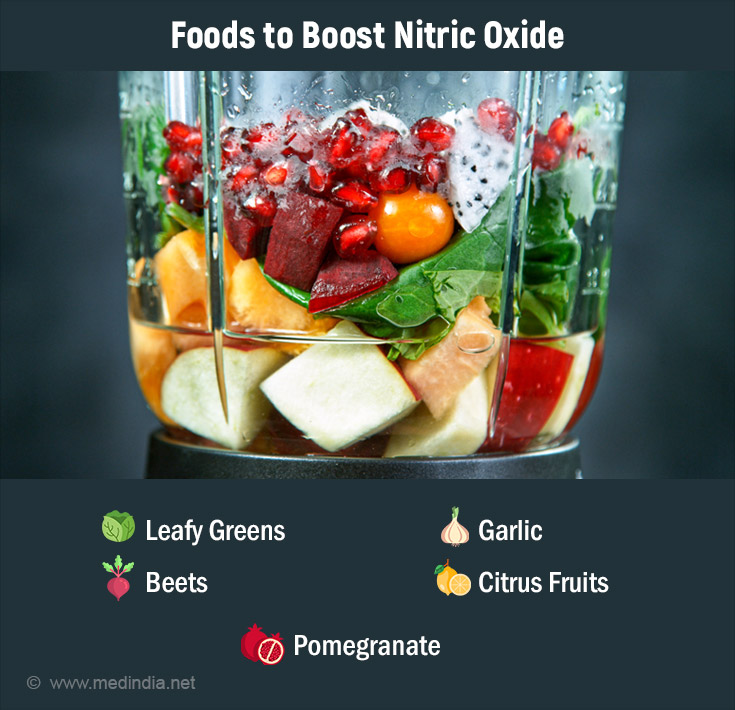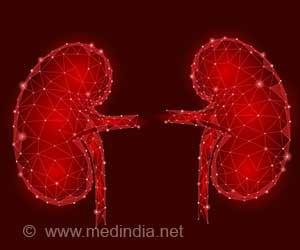- The biological lifetime of nitric oxide: Implications for the perivascular dynamics of NO and O2 - (https://www.ncbi.nlm.nih.gov/pmc/articles/PMC14594/)
- Sildenafil - (https://www.ncbi.nlm.nih.gov/books/NBK558978/)
- Nitric Oxide - (https://www.ncbi.nlm.nih.gov/books/NBK554485/)
- Nitric oxide and the immune response - (https://pubmed.ncbi.nlm.nih.gov/11577346/)
- Concepts of neural nitric oxide-mediated transmission - (https://www.ncbi.nlm.nih.gov/pmc/articles/PMC2610389/)
- A specific inhibitor of nitric oxide formation from L-arginine attenuates endothelium-dependent relaxation - (https://www.ncbi.nlm.nih.gov/pmc/articles/PMC1854347/)
About
Nitric Oxide (NO) is a gaseous signaling molecule with the chemical formula NO, crucial for maintaining numerous physiological functions within the human body. It is primarily produced by various cells, including endothelial cells lining the blood vessels, neurons, macrophages, and other tissues. Despite its simple structure, NO plays multifaceted roles in regulating diverse biological processes, making it indispensable for overall health and well-being.
NO's significance stems from its ability to serve as a versatile signaling molecule, exerting profound effects on various systems throughout the body. Its production and release are tightly regulated, ensuring optimal physiological functioning. NO's actions range from modulating blood vessel tone to influencing neurotransmission and immune response, highlighting its pivotal role in maintaining homeostasis.
Did You Know?
Nitric oxide is produced by both immune cells and neurons, acting in such diverse functions within the body. It's fascinating how a single molecule can have such wide-ranging effects. #nitricoxide #healthfacts #medindiaWhat is the Role of Nitric Oxide in Our Body?
- Vasodilation: One of the most well-known functions of NO is its role in vasodilation, the widening of blood vessels. It signals the smooth muscle cells in the vessel walls to relax, allowing increased blood flow. This function is crucial for regulating blood pressure, oxygen delivery, and nutrient transport throughout the body.
- Neurotransmission: NO also acts as a neurotransmitter in the central nervous system, playing a role in synaptic plasticity, memory formation, and learning. It regulates the release of neurotransmitters such as dopamine and glutamate, affecting mood, cognition, and behavior.
- Immune Response: NO is involved in the immune system's response to pathogens and inflammation. It helps to regulate the activity of immune cells, such as macrophages and neutrophils, aiding in the defense against infections and promoting tissue repair.
- Inflammation Regulation: NO plays a role in regulating inflammation levels, ensuring a balanced immune response. It can modulate the expression of inflammatory mediators and promote the resolution of inflammation to prevent tissue damage.
- Cardiovascular Health: NO is essential for maintaining cardiovascular health by regulating vascular tone, preventing platelet aggregation, and inhibiting the formation of blood clots. Dysfunction in the NO pathway is associated with various cardiovascular diseases, including hypertension, atherosclerosis, and heart failure.
What are the Benefits of Nitric Oxide?
- Improved Blood Flow: By promoting vasodilation, NO enhances blood flow to muscles, organs, and tissues, improving oxygen and nutrient delivery. This is particularly beneficial during exercise, as it enhances performance and endurance.
- Enhanced Exercise Performance: Nitric oxide supplements have been shown to increase exercise tolerance, reduce fatigue, and improve recovery by enhancing blood flow and nutrient delivery to muscles.
- Cardiovascular Protection: NO helps maintain healthy blood pressure levels by dilating blood vessels, reducing the risk of hypertension and heart disease. It also protects against atherosclerosis by inhibiting the adhesion of platelets and leukocytes to the vessel walls.
- Erectile Function: NO plays a crucial role in erectile function by relaxing the smooth muscle cells in the penile arteries, allowing increased blood flow and facilitating erections. Erectile dysfunction often results from decreased NO production or impaired NO signaling.
- Anti-inflammatory Effects: NO helps regulate inflammation levels in the body, reducing the risk of chronic inflammatory diseases such as arthritis, asthma, and inflammatory bowel disease.
What are the Side Effects of Nitric Oxide?
Excessive production or supplementation of nitric oxide (NO) can have adverse effects, despite its essential roles in the body.
- Hypotension: Excessive vasodilation can lead to a sudden drop in blood pressure, causing dizziness, lightheadedness, and fainting.
- Headaches: Some individuals may experience headaches as a side effect of NO supplementation, possibly due to changes in cerebral blood flow.
- Gastrointestinal Distress: High doses of NO supplements may cause gastrointestinal symptoms such as nausea, diarrhea, and abdominal discomfort.
- Interactions with Medications: Nitric oxide supplements can interact with certain medications, including blood pressure medications, erectile dysfunction drugs, and nitrates, potentially leading to adverse effects or complications.
- Respiratory Issues: Inhalation of high concentrations of NO gas can irritate the respiratory tract and cause breathing difficulties.
How is Nitric Oxide Boosted in the Body?
Nitric oxide itself is a gas and cannot be consumed externally in the same way as supplements in pill or liquid form. However, there are supplements available that can boost nitric oxide levels in the body indirectly. These nitric oxide supplements typically contain ingredients that either directly increase nitric oxide production or support its function in the body. Here are some common types of nitric oxide supplements:
These supplements typically contain ingredients such as L-arginine, L-citrulline, or nitrates, which are precursors or substrates involved in the body's natural production of nitric oxide.
L-arginine and L-citrulline are amino acids that serve as substrates for the enzyme nitric oxide synthase (NOS), which synthesizes nitric oxide from arginine. By providing these amino acids, supplements can potentially enhance the production of nitric oxide in the body. Nitrates, found naturally in certain foods like beets and leafy greens, can also be converted into nitric oxide in the body.
These nitric oxide-boosting supplements are often marketed to support cardiovascular health, exercise performance, and overall well-being. However, as with any supplement, it's essential to consult with a healthcare professional before starting supplementation, especially if you have underlying health conditions or are taking medications, as they may interact with certain drugs or have adverse effects in some individuals.
Foods to Boost Nitric Oxide
Several foods can naturally increase NO production in the body.
- Leafy Greens: Vegetables such as spinach, kale, arugula, and Swiss chard are rich in nitrates, which the body converts into nitric oxide.
- Beets: Beetroots are high in nitrates and are known for their potent vasodilatory effects. Beetroot juice or raw beets can significantly increase NO levels.
- Garlic: Garlic contains compounds that stimulate the production of nitric oxide synthase, the enzyme responsible for NO synthesis in the body.
- Citrus Fruits: Citrus fruits like oranges, lemons, and grapefruits are rich in vitamin C, which enhances nitric oxide production and supports cardiovascular health.
- Pomegranate: Pomegranate juice is packed with antioxidants and has been shown to increase NO levels, promoting cardiovascular health and erectile function.

Why is Nitric Oxide a Unique Element?
Nitric oxide (NO) stands out as a unique element due to its multifaceted nature and diverse functions within the body.
Signaling Molecule: Nitric oxide is a signaling molecule in the human body, playing crucial roles in various physiological processes. It's involved in vasodilation, neurotransmission, immune response, and the regulation of cell death (apoptosis).
Discovery and Nobel Prize: Nitric oxide's role as a signaling molecule was discovered by pharmacologist Robert F. Furchgott, biochemist Louis J. Ignarro, and physician Ferid Murad. Their discoveries earned them the Nobel Prize in Physiology or Medicine in 1998.
Short Half-Life: Nitric oxide is highly reactive and has a very short half-life in biological systems, typically less than a few seconds. This rapid breakdown limits its diffusion distance and ensures precise signaling within specific cellular environments(1✔ ✔Trusted Source
The biological lifetime of nitric oxide: Implications for the perivascular dynamics of NO and O2
Go to source).
Role in Viagra: The discovery of NO's role in vasodilation led to the development of sildenafil, marketed under the brand name Viagra. Sildenafil works by inhibiting the enzyme phosphodiesterase type 5 (PDE5), which ultimately leads to increased levels of nitric oxide and enhanced blood flow, helping treat erectile dysfunction(2✔ ✔Trusted Source
Sildenafil
Go to source).
Air Pollutant and Environmental Role: Nitric oxide is a component of air pollution, primarily emitted from vehicle engines and industrial processes. However, it also plays a role in the environment, being involved in the atmospheric chemistry that leads to the formation of ozone and contributing to the nitrogen cycle(3✔ ✔Trusted Source
Nitric Oxide
Go to source).
Antimicrobial Properties: Nitric oxide has antimicrobial properties and can act as a defense mechanism against pathogens. Immune cells such as macrophages produce nitric oxide as part of their response to infections, helping to kill invading bacteria, viruses, and parasites(4✔ ✔Trusted Source
Nitric oxide and the immune response
Go to source).
Neurotransmitter: In the nervous system, nitric oxide acts as a neurotransmitter, facilitating communication between neurons. It's involved in processes such as synaptic plasticity, learning, and memory(5✔ ✔Trusted Source
Concepts of neural nitric oxide-mediated transmission
Go to source).
Endothelium-Derived Relaxing Factor (EDRF): Nitric oxide was initially identified as endothelium-derived relaxing factor (EDRF) due to its role in relaxing blood vessels. Later, it was found to be identical to the previously known endothelium-derived relaxing factor(6✔ ✔Trusted Source
A specific inhibitor of nitric oxide formation from L-arginine attenuates endothelium-dependent relaxation
Go to source).
Summary
In summary, nitric oxide (NO) stands as a pivotal gaseous signaling molecule, intricately woven into the fabric of human physiology. Its multifaceted roles, ranging from vasodilation and neurotransmission to immune response modulation, underscore its indispensability in maintaining overall health and well-being.
Despite its simple structure, NO's short half-life and regulatory mechanisms ensure precise signaling, highlighting its sophistication in orchestrating biological processes.
From its role in cardiovascular health to its antimicrobial properties and environmental impact, nitric oxide continues to captivate scientists and healthcare professionals alike, embodying a remarkable convergence of biological complexity and therapeutic potential.









